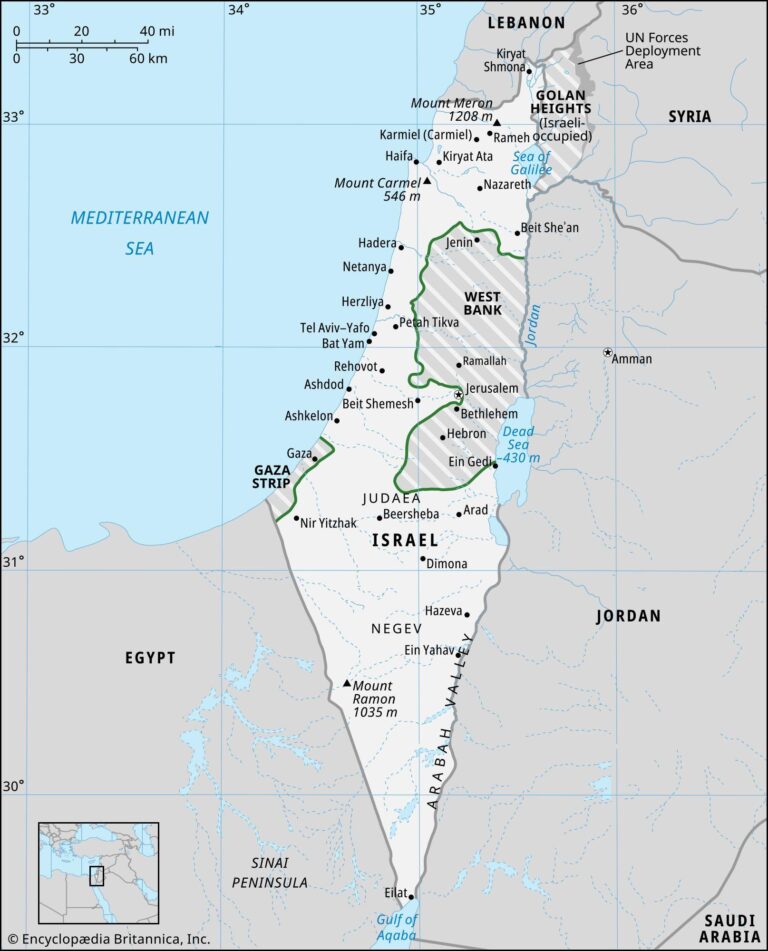LONDON – Labour Party leader Keir Starmer has unveiled a policy proposal calling for the United Kingdom to officially recognize a Palestinian state, marking a significant shift in the party’s approach to Middle East diplomacy. The proposal, outlined amid ongoing tensions between Israel and Palestine, signals a potential redefinition of the UK’s foreign policy stance under Labour leadership. This article examines what Starmer’s plan entails, the political implications for the UK, and the potential impact on international relations in the region.
Starmer’s Proposal for UK Recognition of Palestine Signals Shift in Foreign Policy
Labour leader Keir Starmer’s recent proposal to officially recognize a Palestinian state marks a notable pivot in the UK’s diplomatic stance on the Israeli-Palestinian conflict. Traditionally, the UK has maintained a cautious approach, emphasizing dialogue and a two-state solution without formal recognition. Starmer’s move signals a willingness to push for a more assertive role in Middle Eastern peace efforts, reflecting growing domestic and international pressure to take definitive steps towards supporting Palestinian self-determination.
The implications of this policy shift extend beyond symbolic recognition. It tackles key issues such as:
- Political symbolism: Demonstrating solidarity with Palestinian aspirations for statehood.
- Diplomatic leverage: Potentially reshaping UK relations with Israel and allies.
- Human rights focus: Highlighting the UK’s commitment to addressing humanitarian concerns within the region.
| Aspect | Current UK Position | Starmer’s Proposal |
|---|---|---|
| Palestinian State Recognition | No formal recognition | Official recognition |
| Diplomatic Engagement | Neutral mediation | Proactive support |
| Impact on US-UK Relations | Aligned with US cautious policy | Potential divergence from US stance |
Implications for UK Middle East Relations and Regional Stability
Starmer’s proposal to recognize a Palestinian state signals a potential shift in the UK’s diplomatic posture towards the Middle East, which could reshape existing alliances and open new avenues for dialogue. This move challenges the traditionally cautious approach of recent UK governments, presenting both an opportunity to bolster the UK’s role as a mediator and a risk of complicating its relationship with Israel, a key strategic partner. Regional actors may interpret this as a sign of shifting Western priorities, potentially influencing their diplomatic calculations.
- Strengthened ties with Arab states: Recognition could enhance the UK’s rapport with Arab nations advocating for Palestinian self-determination.
- Strained UK-Israel relations: The policy shift might prompt diplomatic friction or recalibrated security cooperation.
- Impact on peace negotiations: It may either revive stalled talks or entrench divisions depending on subsequent diplomatic engagement.
| Potential Outcome | Regional Impact | UK Diplomatic Challenge |
|---|---|---|
| Increased regional leverage | Enhanced UK influence in Arab League | Balancing commitments to Israel and Palestine |
| Heightened tensions | Possible Israeli pushback and regional polarization | Mitigating fallout through multilateral forums |
| Peace process catalyst | Renewed international mediation efforts | Coordinating with EU and US allies |
Expert Recommendations for Balancing Diplomatic Ties and Human Rights Advocacy
Leading analysts stress that navigating the intricate balance between maintaining robust diplomatic relations and championing human rights requires a multifaceted strategy. Experts advocate for incremental steps grounded in international law, urging the UK to leverage its historical influence in the Middle East as a platform for facilitating dialogue rather than unilateral declarations. This approach aims to avoid alienating key regional partners while simultaneously signaling a commitment to justice and self-determination. They emphasize the importance of crafting policy that supports sustainable peace through engagement with all stakeholders, rather than exacerbating existing tensions.
Moreover, seasoned diplomats recommend enhanced investment in efforts that intertwine advocacy with practical support, such as increasing humanitarian aid and promoting accountability mechanisms. A concise overview of expert priorities includes:
- Strategic Diplomacy: Prioritize backchannel talks to maintain open communication with Israeli and Palestinian authorities.
- Humanitarian Assistance: Amplify funding for programs alleviating civilian suffering.
- International Cooperation: Align with EU and UN frameworks to ensure multilateral support and legitimacy.
- Transparency and Reporting: Regularly publish assessments on human rights conditions to uphold international scrutiny.
| Focus Area | Recommended Action | Potential Impact |
|---|---|---|
| Diplomatic Channels | Engage in quiet diplomacy with stakeholders | Improves trust and reduces public tensions |
| Human Rights Monitoring | Support independent fact-finding missions | Enhances credibility of UK’s advocacy |
| Regional Partnerships | Coordinate with Middle Eastern allies | Strengthens balanced policy outcomes |
To Wrap It Up
As the UK government considers Starmer’s proposal to officially recognize a Palestinian state, the move signifies a potential shift in British foreign policy amid ongoing Middle East tensions. While supporters argue it could advance peace efforts and align the UK with international consensus, critics caution it may complicate relations with Israel and impact broader diplomatic dynamics. The coming months will reveal how this initiative shapes the UK’s role in the region and influences the long-standing quest for a two-state solution.




